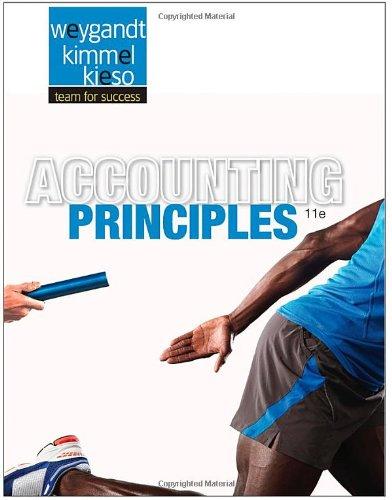Marsh Industries had sales in 2013 of $6,400,000 and gross profit of $1,100,000. Management is considering two
Question:
Plan A would increase the selling price per unit from $8.00 to $8.40. Sales volume would decrease by 10% from its 2013 level. Plan B would decrease the selling price per unit by $0.50. The marketing department expects that the sales volume would increase by 100,000 units.
At the end of 2013, Marsh has 38,000 units of inventory on hand. If Plan A is accepted, the 2014 ending inventory should be equal to 5% of the 2014 sales. If Plan B is accepted, the ending inventory should be equal to 60,000 units. Each unit produced will cost $1.80 in direct labor, $1.30 in direct materials, and $1.20 in variable overhead. The fixed overhead for 2014 should be $1,895,000.
Instructions
(a) Prepare a sales budget for 2014 under each plan.
(b) Prepare a production budget for 2014 under each plan.
(c) Compute the production cost per unit under each plan. Why is the cost per unit different for each of the two plans?
(d) Which plan should be accepted?
Ending Inventory
The ending inventory is the amount of inventory that a business is required to present on its balance sheet. It can be calculated using the ending inventory formula Ending Inventory Formula =...
Fantastic news! We've Found the answer you've been seeking!
Step by Step Answer:
Related Book For 

Accounting Principles
ISBN: 9781118566671
11th Edition
Authors: Jerry Weygandt, Paul Kimmel, Donald Kieso
Question Posted:





